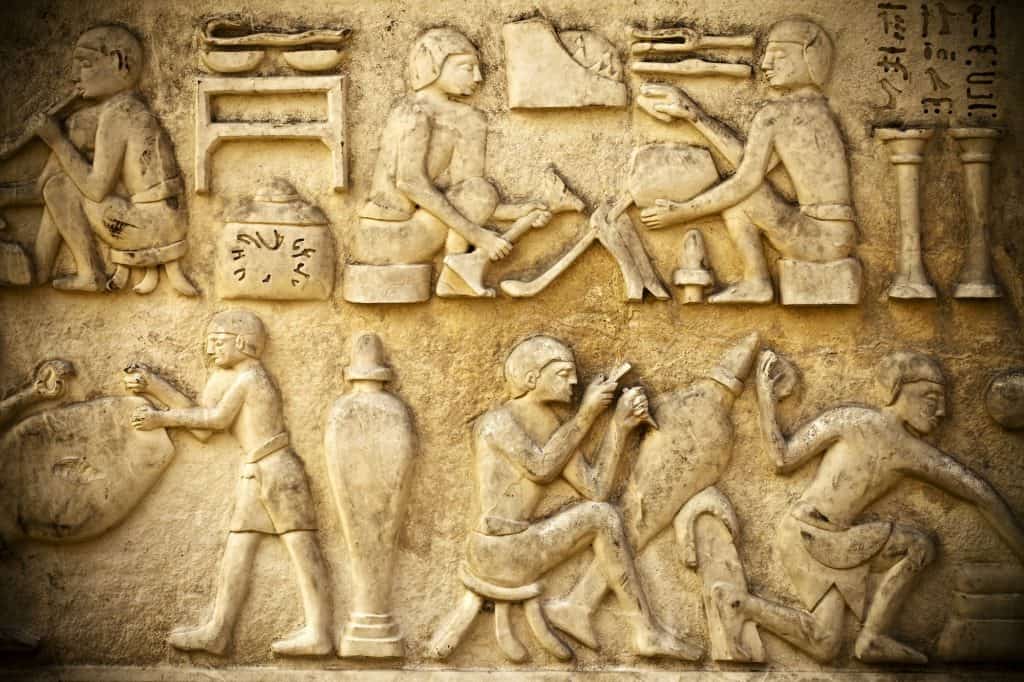In the realm of online streaming, controversy is no stranger. The latest bone of contention? Netflix’s portrayal of Cleopatra in their new documentary series. This series is a successor to Jada Pinkett Smith’s African Queens and has ruffled more than a few feathers. But where does the divergence begin?
The African Queens Series
The African Queens series, produced by Jada Pinkett Smith, embarked on its second season by focusing on Cleopatra, played by British mixed-race actress Adele James.
The series’ premise – a focus on African queens – is intriguing and could have been a great platform for illuminating pre-colonial African history. However, the series stumbles by defining “African” too broadly, encompassing Egypt, which is not a part of sub-Saharan Africa.
Egypt, historically, culturally, and ethnically, has stronger links with what was formerly known as Mesopotamia than with sub-Saharan Africa. By casting Cleopatra, a Ptolemaic queen of Egypt, as a sub-Saharan African queen, the show makes a misstep.
Cleopatra’s True Heritage
The Ptolemaic dynasty, which Cleopatra belonged to, was Macedonian Greek. They were so insistent on maintaining their Greek heritage that Cleopatra, as per historical records, was the first of her lineage to learn Egyptian. The Ptolemies spoke Greek, married within Greek circles, and lived as Greek aristocracy on Egyptian soil.
As for Cleopatra’s appearance, she likely resembled Gal Gadot more than Adele James, according to contemporary depictions of her. Producer Jada Pinkett Smith has been quoted saying Cleopatra’s heritage is highly debated, but this claim lacks solid backing.
Scholars who argue Cleopatra was black are few and far between, and their perspectives often align more with a desire to subvert established historical narratives than to contribute constructively to them.
To this day there is no evidence that even places in question if Cleopatra was Greek and the “Egypt’s Secretary General of the Supreme Council of Antiquities” even released a press release to say so.
Political Agenda Behind the Casting
Director Tina Gharavi, in a piece for Variety, admitted that the decision to cast a black actress as Cleopatra was a political act and has nothing to do with historical facts.
She argues for the need to engage in a conversation about colorism and the internalized white supremacy that Hollywood has inculcated in us.
However, this controversy is not merely about the casting choice but also about the deliberate distortion of Egyptian history and iconography.
The Egyptian Backlash
This distortion has not been well-received in Egypt. Egyptian lawyer Mahmoud al-Samari filed a legal complaint against Netflix, arguing that the series promotes Afrocentric thinking aimed at erasing the Egyptian identity.
Gharavi’s response to the backlash was to assert that she asked Egyptians to see themselves as Africans, and that she is okay with their fury at her for this.

Rewriting History
Gharavi suggests that the story of Cleopatra is less about her and more about us, indicating the goal of rewriting history. She expresses a desire to liberate our imaginations and create a world where we can explore our historical figures without fearing the complexity that comes with their depiction.
However, the manipulation of historical figures and narratives for political agendas raises serious questions. By ignoring established historical evidence in favor of an alternative narrative, the makers of this series are pushing their political agenda.
This approach could lead to a dangerous trend of rewriting and recasting history as per one’s whims and fancies.
The Aftermath
Despite the backlash from the historical and Egyptian communities, the series is set to release on Netflix in a few weeks. The controversy, while causing a stir, will likely not dent Netflix’s subscriber base significantly.
The controversy surrounding the depiction of Cleopatra in Jada Pinkett Smith’s series has certainly struck a nerve across various communities, from the academic and historical circles to the broader public. It’s an intriguing case study into how we perceive, interpret, and represent history, especially when it comes to the intersection of history and identity.
How we portray figures from history in media has a profound impact on our collective understanding of the past. It shapes our perceptions of these historical figures and can, in some cases, even alter the narrative surrounding them.
The series’ director, Tina Gharavi, has stated that she believes casting a black actress in the role of Cleopatra is a political act. This has caused a stir, because people feel that this documentary prioritizes politics over historical accuracy.
The director’s comments about Cleopatra’s ethnicity and her assertion that “we need to liberate our imaginations and boldly create a world in which we can explore our historical figures without fearing the complexity that comes with their depiction” further politicized the whole situation.
It suggests an approach that values interpretation and reimagination over strict adherence to historical fact.
Summary
In conclusion, the controversy surrounding this series and its depiction of Cleopatra is a reflection of the broader debates about representation, accuracy, and interpretation in historical media.
Should our culture be revising historical facts, so it panders to a political narrative (regardless on which side of the political spectrum you stand on).
In our opinion, our goal should always be to seek the truth of history, recognizing the subtle intricacies and complexities inherent in our past.
As we continue to bring historical narratives to life, it is crucial that we adhere to a standard that respects the varied experiences and identities of those who actually lived through these eras.
This Documentary and the ongoing discussion about Cleopatra’s portrayal is just one facet of this broader discussion and can inform us how our culture is moved in certain directions.
But as always – a move in one direction will also motivate a move in the opposite direction, and viewers seem to challenge the idea that history is up for debate for now…
